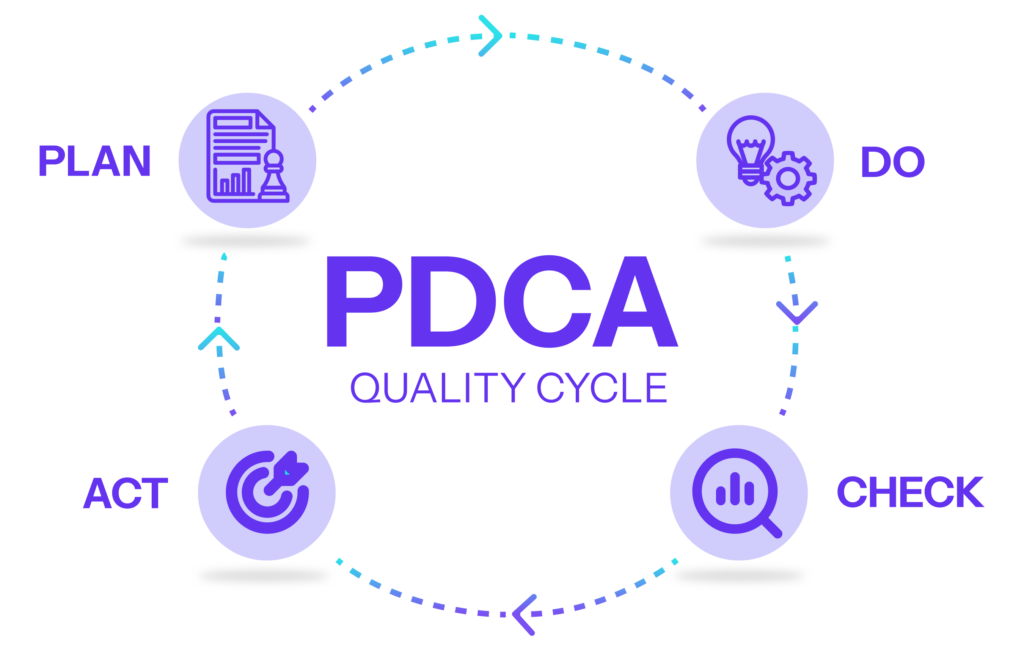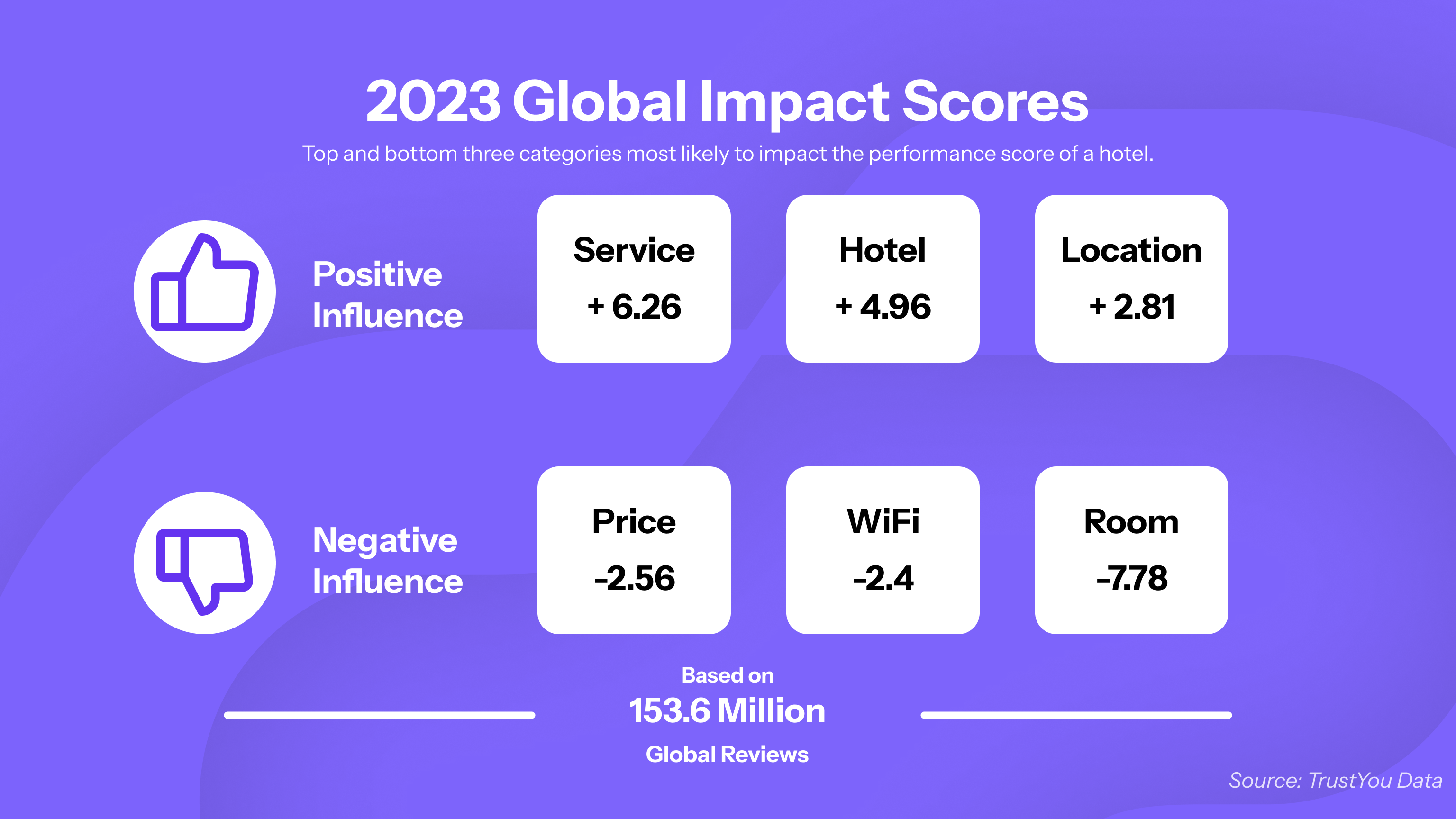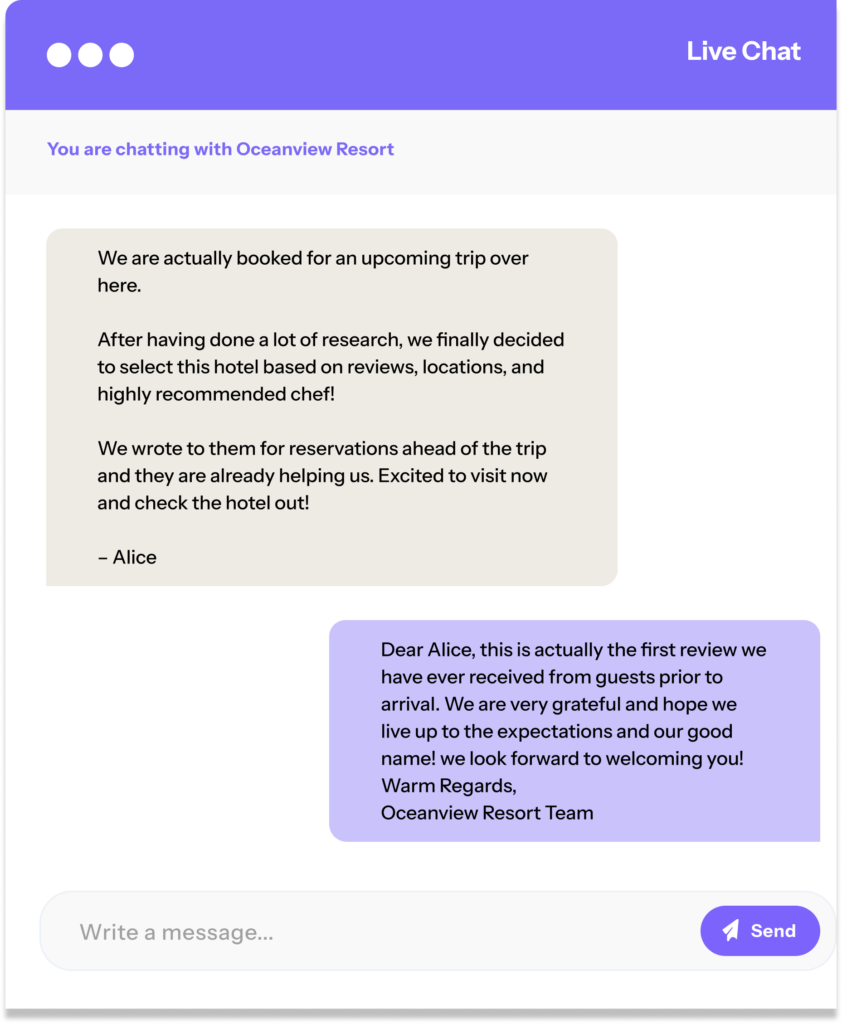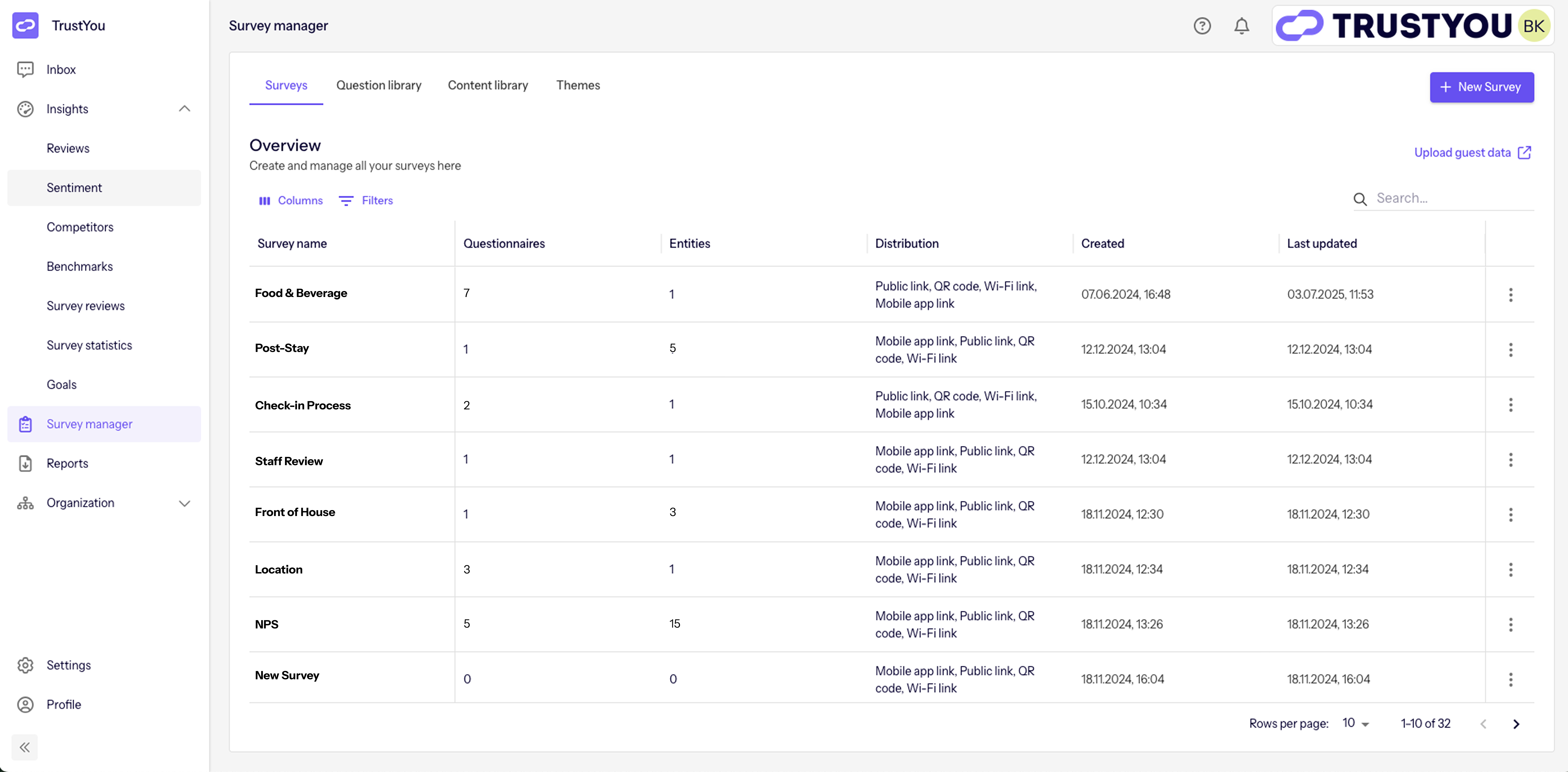Your complete guide to online reputation management for hotels. Tips to improve the guest experience from pre-stay to post-stay using TrustYou’s Customer Experience Platform and other essential tools for hotels.
What is Online Reputation Management?
Online Hotel Reputation Management refers to all the actions a brand takes to monitor and improve its image. It involves tracking what is said about a business online, responding to guest reviews, and building and maintaining a positive reputation using online reputation management tools.
Why is Online Reputation Management Important for Hotels in 2025?
The image you build online can significantly impact your future bookings and your hotel revenue. By effectively managing your online reputation, you increase the chances of getting more bookings, encourage guests to return, and be your brand ambassadors.
A positive online reputation can improve your Average Daily Rate (ADR) and revenue per available room (RevPAR). So much so, that guests will be willing to pay more for a hotel with a strong reputation and higher scores than choose a hotel with a slightly lower price. As a result, the ADR and RevPAR will increase, leading to enhanced revenue and profitability.
Meanwhile, a hotel actively managing its online reputation can also benefit from upselling and cross-selling activities. When guests have a positive experience at a hotel, they are more likely to be receptive to additional services, such as spa treatments, restaurant reservations, or tours.
Modern Travelers and Hotel Review Influence: What Matters Most to the Guest
When booking a stay, the modern traveler will look first at the online reviews a property receives. TrustYou’s research shows that a whopping 95% of travelers scan feedback before booking. Positive feedback and high ratings can help a property stand out and increase bookings.
However, they typically read both positive and negative feedback. In fact, on average, they read nine reviews before booking. 57% of feedback they read is positive, and 43% is negative. This means both sides matter. Meaning, guests seek transparency.
Your website plays a key role. It’s often the first destination after a search. Make sure it features current reviews, a mobile-friendly experience and reflects your brand’s identity.
Are you listed on review platforms like Tripadvisor and Booking.com? Audit the volume of reviews and booking you get from each. Customer Experience Platforms like TrustYou’s help you respond to comments at scale in both pre-stay and post-stay phases.

Hotel Reputation Management Strategy: Build and Improve Guest Reviews
Develop a Quality-Driven Mindest
Your hospitality reputation management begins with service quality. Make improvement a continuous part of operations. Your reputation should reflect your offering. That’s why focusing on quality and improvement should always be the driving force of your online reputation.
Strive for a strategy where quality is deeply integrated into everything you do. It will show your guests and staff that you value their experience and are not afraid to go the extra mile if needed.
New ideas or improvements are often difficult to implement. How do you make sure that changes stick? We recommend considering one of the first processes defining quality and the source for complex quality strategies that led to the Japanese economic miracle between the 1950s and 1980s.

Use PDCA to Improve Hotel Reputation
In a nutshell, how can you implement PDCA in your hotel that will help improve your online reputation?
- Plan: Identify areas that need improvement, set goals and objectives, and create a plan to achieve those goals. For example, you may identify the need to improve guest satisfaction. Start looking at the review data and areas that need improvement. Start documenting everything you need to make these changes happen, such as tasks, resources involved, budget, etc.
- Do: Implement the plan. For example, upgrade your tech stack or train fron desk staff to ensure smoother check-ins.
- Check: Track whether the changes improve satisfaction. For instance, fewer complaints about check-in = success.
- Act: Standardize successful changes. Document what worked and ensure it’s consistently applied.
PDCA is a loop. Once you act, start again by planning the next improvement area.
Simply put, PDCA helps you implement a mindset of improvement for whatever you do: from operations to online reputation management for your hotel.
Guest-Centered Online Reputation Management: Pre-Stay to Post-Stay
How do your guests experience their stay? This is the most critical question for improving your services and online reputation. Try to collect as much information as possible on how your guests perceive your property and service from pre-stay to post-stay. Take this information and improve what you offer by using the PDCA cycle.
Here are a few things to consider that will help improve your hotel’s online reputation from pre-stay to post-stay:
Pre-Stay Phase
Your potential guests’ first impression of your property starts with the research and booking phase. Here are a few things to consider to improve the pre-stay experience:
#1 Identify Your Strengths and Weaknesses
The research and booking phase can tell you much about what your guests are looking for and why they chose your hotel. Knowing your unique selling point will help you target potential guests interested in your offer.
The best way to personalize your pre-stay phase is by looking at reviews. What do your guests mention most in reviews regarding a positive experience? What do guests enjoy most during their stay? Get a good grip on your strengths and weaknesses by looking at all the feedback you receive.
With TrustYou’s Customer Experience Platform, you can deep-dive into customer sentiment and break down the data available from your many reviews into actionable insights. The platform has 180+ categories you can track —cleanliness, sustainability, comfort, and more.
These same insights are incredibly valuable for reputation management for homestays, where personalized guest experiences and trust are equally important.

#2 Optimize The Booking Experience
Ensure your booking process is fast, mobile-optimized, and transparent. Use realistic images and clear packages. Include FAQs to set expectations accurately.
#3 Offer Great Customer Service from the Beginning
Provide various contact channels, such as email, phone, and live chat on your website. Ensure they are easily accessible to customers. This will make it easier for guests to contact the hotel with questions or concerns. Respond to inquiries promptly to create a positive first impression.
You can use tools such as TrustYou’s AI Agents to respond inquiries quickly, effectively and at scale.

On-Site Experience
Solve Issues on the Go
Addressing issues in real time can help prevent negative reviews and show that your hotel is committed to providing a positive experience. For example, if a guest complains about a noisy room, you can offer a room change or provide earplugs to help alleviate the issue.
Post-Stay Phase
When working in hospitality, it’s crucial to always think about the guests and direct all your efforts toward meeting their standards and expectations. Keep in mind that we’re talking about a two-way street, a dialogue.
Without guest feedback, you wouldn’t know if your efforts lead to the desired outcome or if you’ve adopted the right approach. It’s important to always rely on your audience’s feedback, focus on what needs improvement, and keep the standards high.
Use TrustYou Surveys to collect experience data from pre-stay to post-stay. Create your own library of questions and templates to match your needs.

#1 Respond to Guest Reviews
90% of guests expect hotels to respond to reviews. Silence is perceived as indifference. So, it important to always acknowledge both positive and negative comments.
#2 Ask for Feedback
The best way to get feedback is simple: just ask for it. A post-stay survey allows you to ask travelers relevant questions that apply to your hotel or group. This will help generate meaningful feedback that can be kept internal, integrated on your website, or shared on Google for people to see during their research.
Plus, verified feedback helps avoid fake reviews and gives you direct insights.
Related Read: Why Didn’t My Guest Leave a Review?
How to Optimize Your Hotel Website and Social Media for Effective Online Reputation Management
As front-line representatives, hotel staff plays a critical role in the online reputation management of a hotel. How they interact with guests, handle complaints, and provide service can significantly influence guest satisfaction and increase scores.
Make sure your staff is well-trained, motivated, and appreciated. This way, you invest directly in your quality and reputation by ensuring your team receives the necessary training and motivation to do its job.
However, having great staff isn’t the only way you should be handling your reputation management. In fact, having an optimized website and social media platforms are key to your online reputation. Let’s explore how you can improve them:
Refine Your Online Presence
A well-crafted digital presence will allow your hotel to connect with potential guests, promote your brand and services, and manage your online reputation.
Without a carefully built digital presence, you may miss out on potential guests and struggle to maintain an online reputation and a strong brand identity. Therefore, it is crucial for hotels to invest in digital marketing and establish a robust online presence to succeed in the highly competitive hospitality industry.
#1 Refine Your Website
TrustYou’s research shows that a hotel’s website is among the first stops for many travelers looking to read reviews before booking. Here are a few things to consider that could help improve your website and your hotel’s online reputation:
- Visual appeal: Ensure that your website is visually appealing and has a design consistent with your brand. Use high-quality images and videos to showcase your rooms, amenities, and location.
- Intuitive navigation: Your website should be easy to navigate. Make important information, such as room rates and availability, easy for your potential guests to find.
- Mobile-friendliness: Optimize the website for mobile devices to ensure it is easy to use on smartphones and tablets.
- Clear, easy-to-follow booking process: Ensure that the hotel’s booking engine is integrated into the website and is easy to use. The booking process should be simple and intuitive, with clear instructions and prompts.
- Relevant content: Provide valuable and informative content for potential guests, including information about the hotel’s location, amenities, and local attractions.
Keep in mind that the first 1 to 3 seconds are critical for the user experience. What’s more, bouncing can increase by 32% if you don’t capture your visitors’ attention in this timeframe.
- High speed: Ensure that the website loads quickly, as slow-loading websites can lead to high bounce rates and lost bookings.
- Enhanced security: Ensure the website is secure, with SSL encryption and other security measures to protect guests’ personal and financial information.
#2 Make it Easy for Travelers to Find You Online
With so many accommodation facilities available at the click of a button, making sure that travelers can find you easily on the internet is a must to boost the number of potential guests visiting your website.
Ranking as high as possible on the first search results page should be a top priority. Recent studies show that the first organic result in Google gets a 27.6% click-through rate (CTR). In fact, the first 5 organic results get the most attention, with a 69.1% CTR.
Here are a few things to consider that could help implement an SEO strategy and enhance your hotel’s online reputation:
- Website structure: Ensure the website is structured in a way that is easy for search engines to crawl and index. Have a clear hierarchy of pages, use descriptive URLs, and optimize website speed.
- Keyword research: Identify the most relevant and high-volume keywords for your hotel’s target audience. Use them strategically in website content, including titles, meta descriptions, and page copy.
- Local SEO: Optimize your hotel’s online presence for local search by claiming and verifying business listings on Google My Business, Yelp, and other local directories.
- Content strategy: Develop a content strategy that provides valuable and informative content for potential guests. Create blog posts and other resources that provide helpful information.
- Mobile optimization: Ensure that the website is optimized for mobile devices, as more and more people use their smartphones to search for travel accommodations.
- Link building: Build high-quality backlinks to your hotel’s website from reputable sources. This will increase your website’s authority and visibility.
Finally, highlighting and updating your listings with online reputation management tools for hotels can further boost your search visibility.
#3 Engage on Social Media
Social media has grown dramatically in the last decade. The latest data shows that 6 out of 10 consumers spend around 2.5 hours daily on social media accounts.
Here are a few things to consider that could help enhance your social media strategy and your hotel’s online reputation:
- Define your hospitality reputation management goals on social: Outline your objectives, the target audience, strategic content pillars, and how this will help strengthen your brand identity.
- Choose the right social media platforms: Prioritize the most relevant platforms to your business, such as Facebook, Instagram and TikTok.
- Create engaging content: The content should resonate with your target audience. Use photos and videos of the hotel, information about local attractions, and tips for travelers visiting the area.
- Use social media advertising: Social media advertising can be a powerful tool for your hotel. Indeed, you can target specific audiences and promote your services, such as special offers, events, and other promotions.
- Respond to customer inquiries and feedback: Monitor your social media accounts for customer inquiries and feedback, and respond promptly and professionally.
- Track and analyze performance: Use metrics like engagement rates, follower growth, and website traffic to analyze and adjust the strategy as needed.
Online reputation management is so much more than carefully crafting your digital presence. Ultimately, it reflects how you run your hotel and treat your guests and staff. To enhance your online reputation, adopt an improvement mindset, listen to your guests’ feedback, and actively act based on their reviews.
Key Takeaways for Effective Hotel Reputation Management
Managing your hotel’s online reputation is critical for staying ahead of the curve, boosting bookings and creating customer loyalty. From pre-stay to post-stay feedback, each touchpoint affects how guests perceive your property and whether they’ll choose to book again or recommend you.
Here’s what to remember as you craft a successful hotel reputation management strategy:
- Monitor, respond, and act on guest feedback consistently. Incirporate into your tech stack tools like like TrustYou’s AI Agents and Customer Experience Platform to collect, analyze and act on sentiment data across every stage of the guest journey.
- Leverage SEO and mobile optimization to enhance your online visibility. A fast, clear, mobile-friendly website with updated reviews and easy booking options can drastically increase your conversion rates.
- Offer a seamless guest experience throughout the customer journey. Personalized communication, real-time issue resolution, and follow-up surveys all contribute to positive reviews and repeat bookings.
- Invest in staff training and internal quality improvements. Motivated, guest-focused teams are at the heart of great reviews and operational excellence.
- Show up where travelers search. Be active on top review platforms, OTAs, online booking platforms, and maintain updated, engaging content across your listings.
- Be social and authentic. Engage your audience across platforms like Instagram and TikTok. Highlight real guest stories, local culture, and your brand’s personality.
Final Thoughts on Hospitality Reputation Management
Ultimately, online reputation management reflects how you run your hotel. It’s not just about review scores; it’s about building trust and letting your guests become your most valuable marketing channel.
Ready to take control of your hotel’s online reputation? Request a demo of TrustYou’s CXP to learn how it can help you capture insights, improve service, and grow your bookings.


